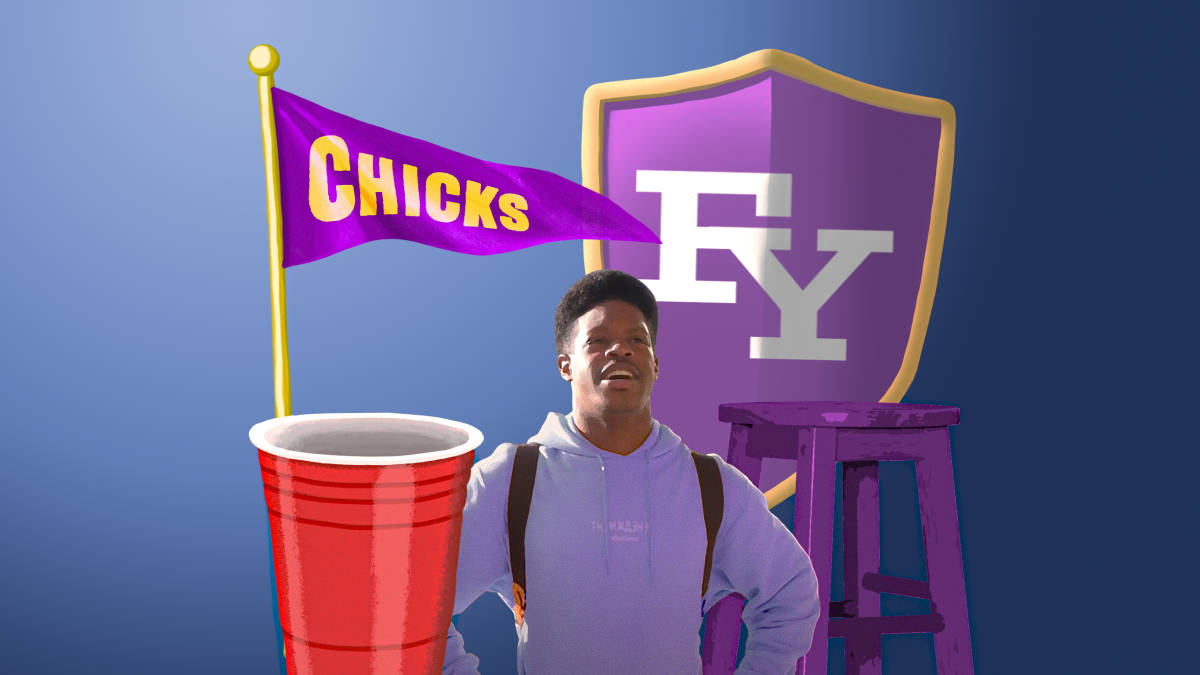Social media can be the link connecting the over 39,000 students who attend LSU. Although they all come from diverse backgrounds and have different career paths, LSU students have shared experiences that bring them together.
LSU content creators have attracted massive social media followings by sharing memes and posts relatable to other students.
The LSU-inspired Instagram accounts of Fifth Year LSU, Seth J. Trotter, LSU Chicks, Barstool LSU and RedCup LSU have over 230,000 followers combined. Whether it’s memes about LSU’s daunting testing center Himes Hall or videos joking about squirrels, these posts allow students to bond over their shared LSU experience.
“I always want the voice of the account to be from one LSU student to another,” Alex Mock, who runs Fifth Year LSU, said.
“I noticed there wasn’t an account for the average LSU student,” he said. “I kinda made an everyman LSU account, you know, the stuff that every LSU student can relate to.”
Mock started the account when he was an undergraduate majoring in sports administration and has kept it running as he went on to pursue his master’s degree at LSU. He said he draws inspiration from personal experience and observation, always adding a bit of humor to his posts.
“Every college has a bad dorm, but only LSU has Herget,” Mock said.
His account has over 14,000 followers, with 34% from the Baton Rouge area, followed by New Orleans and Houston. Fifth Year LSU reaches around 10,000 accounts weekly. Mock said he had no strategy for his account, and the growth in followers has been organic.
Trotter’s Instagram account, which he runs under his name, has more than 71,000 followers, but an even greater reach of around 6.4 million accounts in the past month. His videos garner anywhere from 80,000 to 1 million views on average, with his most viral video on TikTok receiving 5 million views. TikTok is his largest platform, where he has more than 146,000 followers and 19.2 million likes.
“My platform is free speech. Even if you say something wild and controversial, I’ll still post it,” said Trotter, a senior majoring in entrepreneurship.
Trotter films man-on-the-street videos in the Quad where he asks students questions like, “What’s your unpopular opinion?”
“I try to base questions off of our demographic here. Like if we have a majority of college students, then I try to ask college-related questions,” Trotter said. “So, the questions that I’ve been asking so far are questions that college students can relate to, like relationship questions.”
He said relatability and giving people a chance to say what they think is what drives his content.
“You should say whatever you want to say without having backlash,” Trotter said. “But obviously people are gonna talk about it because people like to debate each other, which isn’t bad, but I think disagreeing is good because these topics are up to discussion.”
Trotter’s Instagram followers are 74% women ages 18 to 25, with the most views coming from Baton Rouge, then Atlanta and Los Angeles.
Trotter said he pays attention to analytics to decide which clips to use based on what will gain more traction.
“I think if you stick to a routine and are consistent and really want something to succeed, then eventually people will start seeing you put in the work, and eventually it’ll take off,” he said.
These LSU content creators have proven that relatable content drives views and consistency maintains that attention.
Mass communication professor Joshua Howard has spent years studying the effects of social media and online communities. He said timing is key to online content going viral, as well as staying on top of trends and being consistent.
“I believe social media is still an ongoing and growing environment,” Howard said. “There is so much research that’s being done right now on social media because we’re all still trying to understand it.”
He said social media has proven to be an outlet that allows communities to connect in ways that would not happen otherwise.
“I do believe that social media as a whole has the potential to be more of a benefit to well-being, and holistic well-being, than not,” he said. “At the end of the day, everyone needs community, and so we are going to be seeking that out, whether it’s online or in person. Community is going to continue to grow.”
Mass communication professor Will Mari, who specializes in media history and media law, said social media platforms reflect the demographic of their users.
He said certain demographics gravitate toward specific social media platforms depending on the purpose of their use; for example, TikTok tends to have a younger demographics. He said social media is likely to continue to evolve in the future but that there will still be online communities.
“It may not even be called social media anymore, but it’ll still be part of our society,” he said.
For LSU, it’s a community of students, faculty and alumni that expresses its shared experiences online.
“College is just a crazy part of everyone’s life… that makes us who we are in the end,” Mock said. “But you know, the crazy doesn’t have to be stressful. We can have some fun during these four years, and I guess that’s what the meme account is there for, to be another little piece of the puzzle to the picture that is the LSU student experience.”







